© 2025 MJH Life Sciences™ , Patient Care Online – Primary Care News and Clinical Resources. All rights reserved.
Inflammatory Bowel Disease: True or False?
True or False: Surgical removal of the colon will cure ulcerative colitis without significant long-term sequelae. Answer and 4 more statement challenges, here.
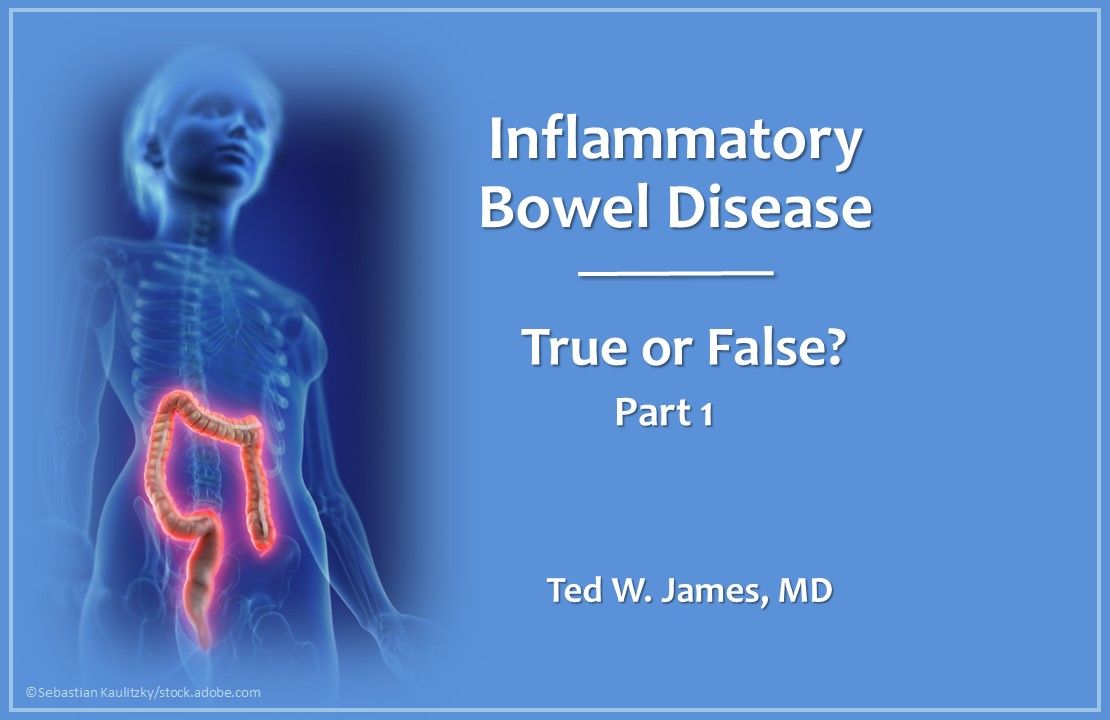
In the short slide show above, you'll find 5 statements about inflammatory bowel disease (Crohn disease and ulcerative colitis) on topics including differential diagnosis, a surgical "cure," twin studies, and more. What's true and what's false? Click on the arrow on slide 1 and test yourself.
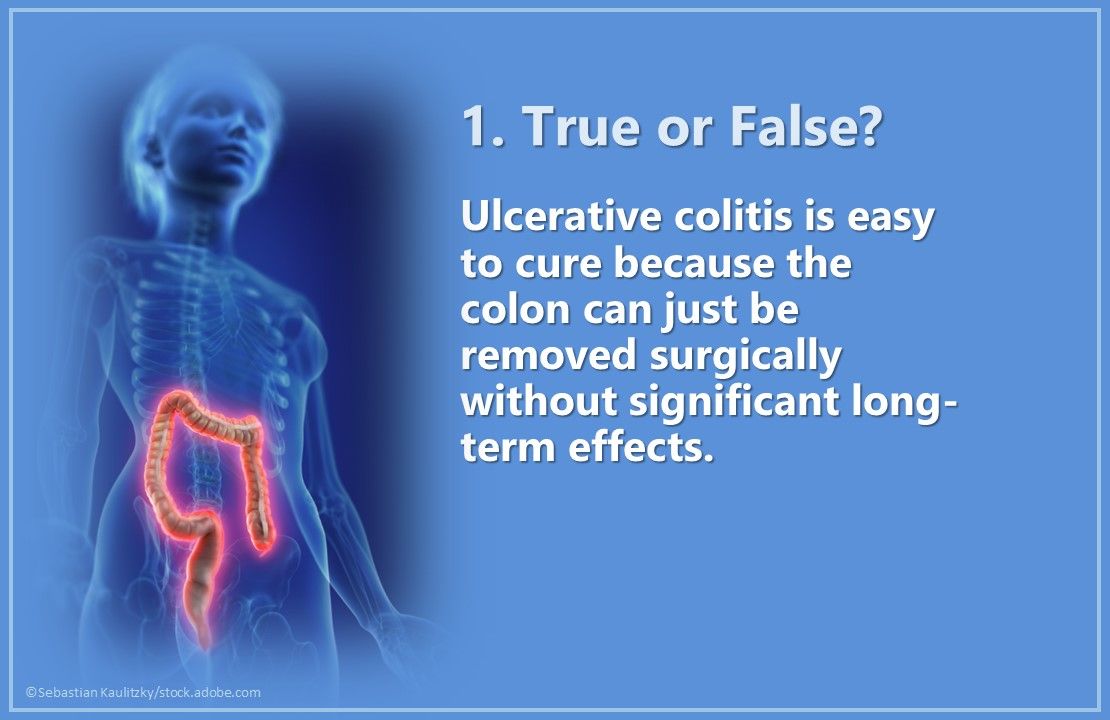
1. True or False: Ulcerative colitis is easy to cure because the colon can just be removed surgically without significant long-term effects.
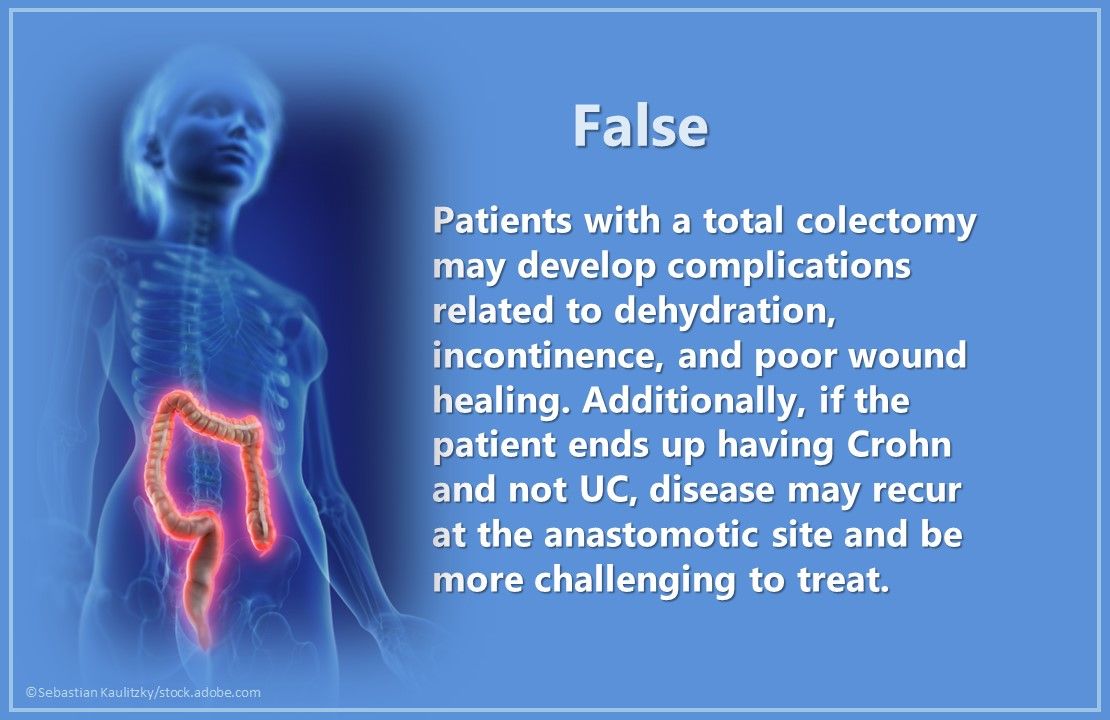
False: Total colectomy can lead to complications related to dehydration, incontinence, and poor wound healing. If the patient ends up having Crohn diseaes, disease may recur at the anastomotic site and be more challenging to treat.
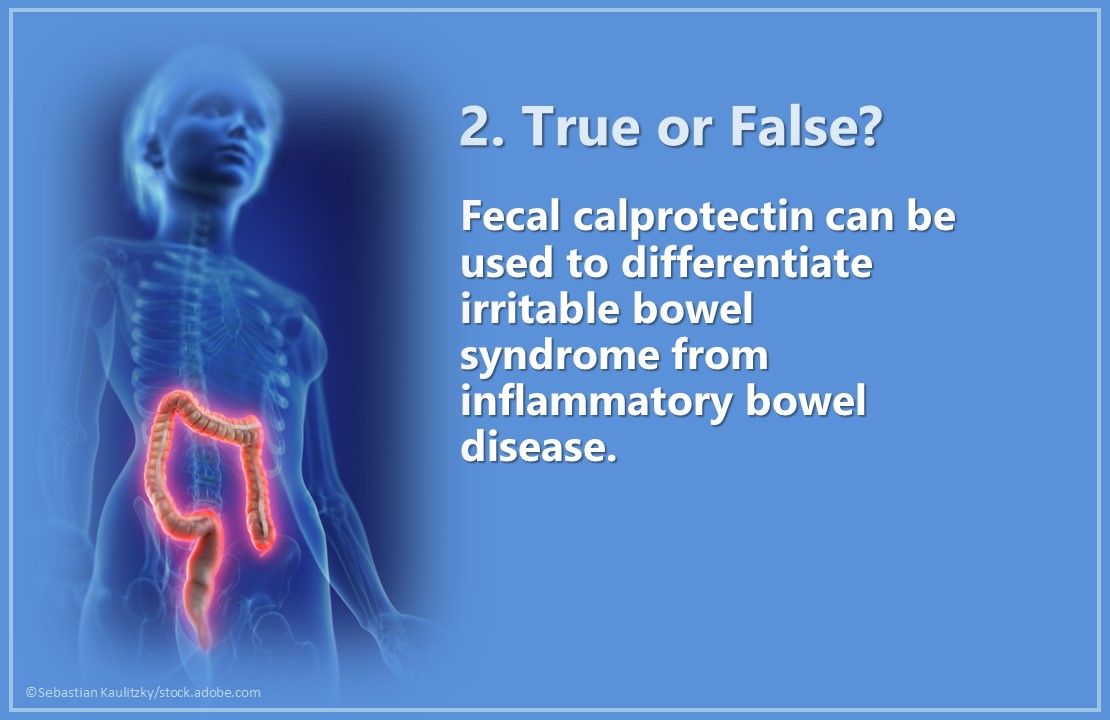
2. True or False: Fecal calprotectin can be used to differentiate irritable bowel syndrome from inflammatory bowel disease.
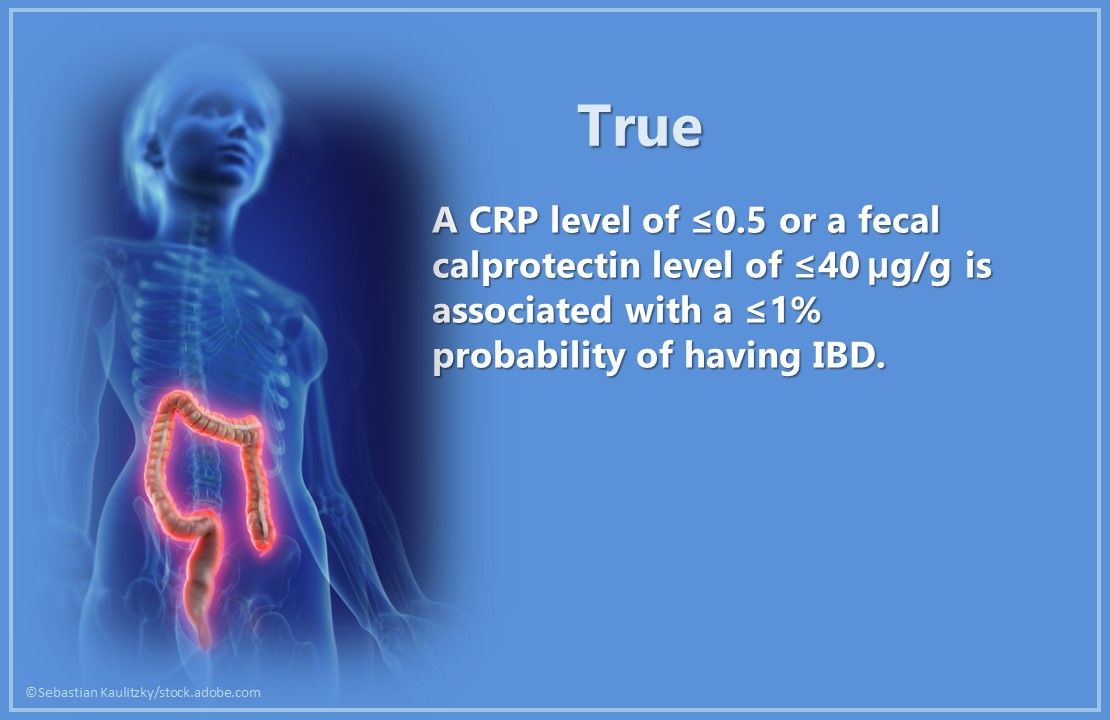
True. A CRP level of ≤0.5 or a fecal calprotectin level of ≤40 μg/g is associated with a ≤1% probability of having IBD. (Menees S, et al. Am J Gastroenterol 2015;110:444–454.)
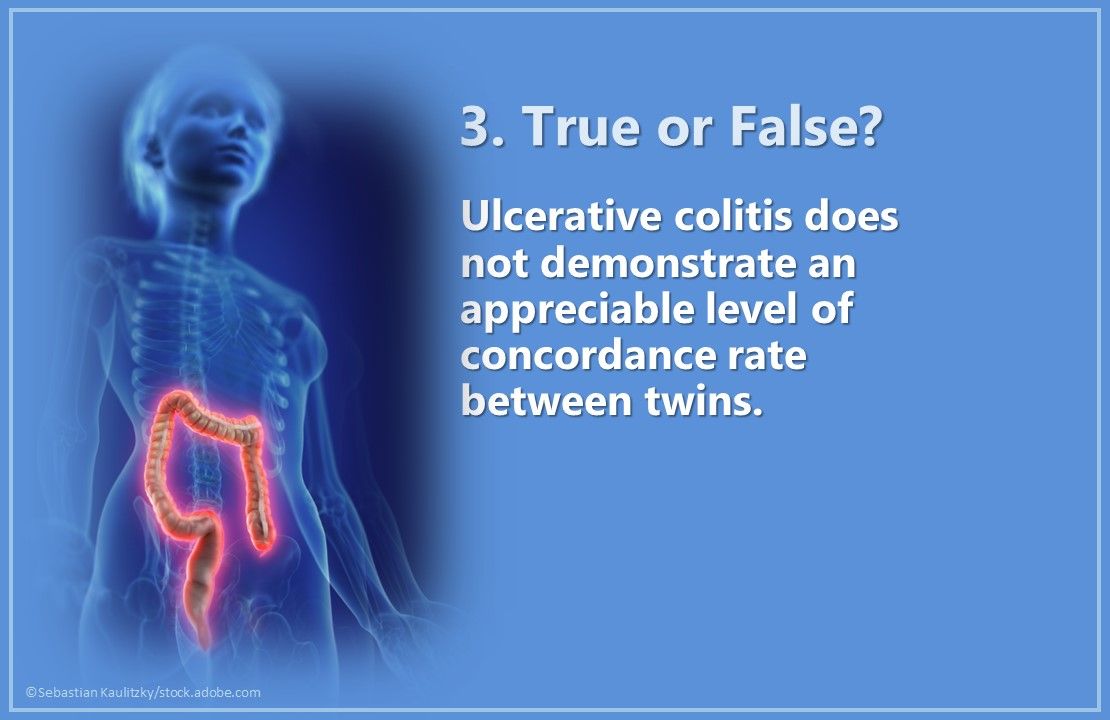
3. True or False: Ulcerative colitis does not demonstrate an appreciable level of concordance rate between twins.
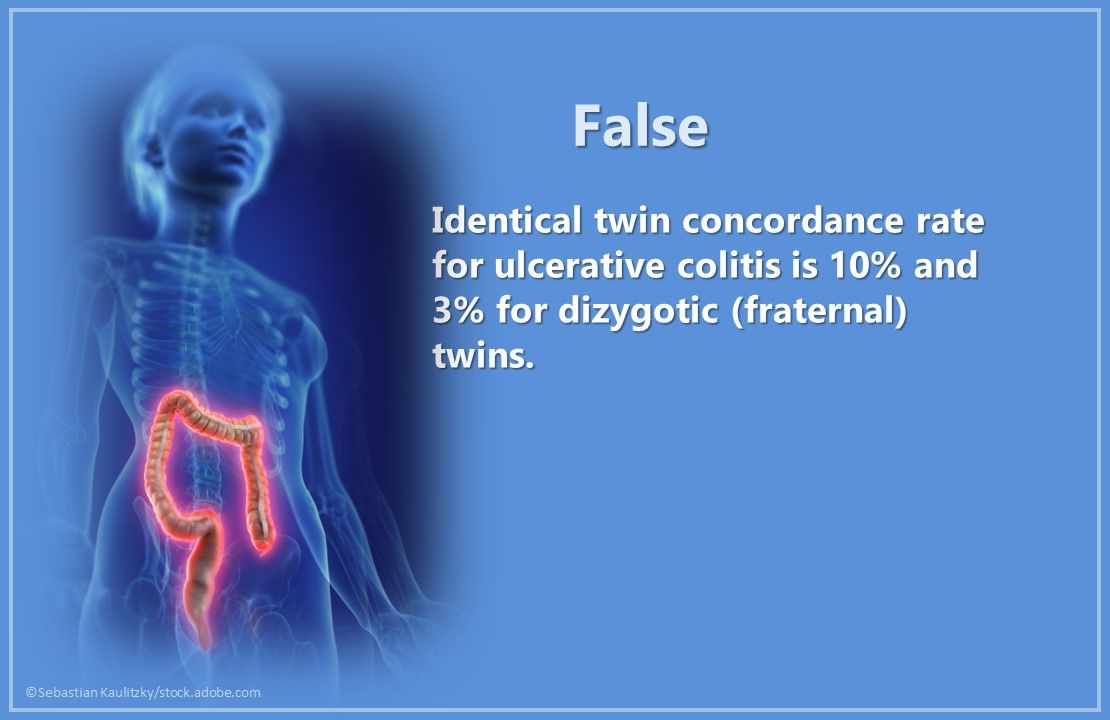
False. Identical twin concordance rate for ulcerative colitis is 10% and 3% for dizygotic twins. (Tysk C, et al. Gut. 1988;29:990-996.)
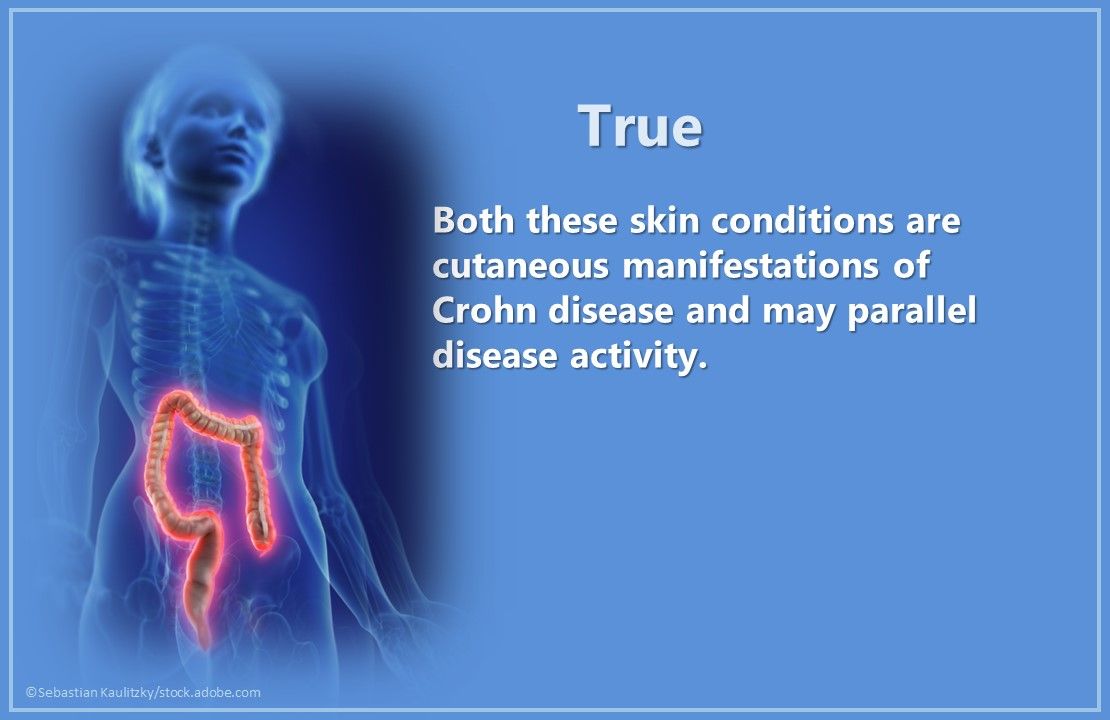
True: Both erythema and pyoderma gangrenosum are cutaneous manifestations of Crohn disease and may parallel disease activity.
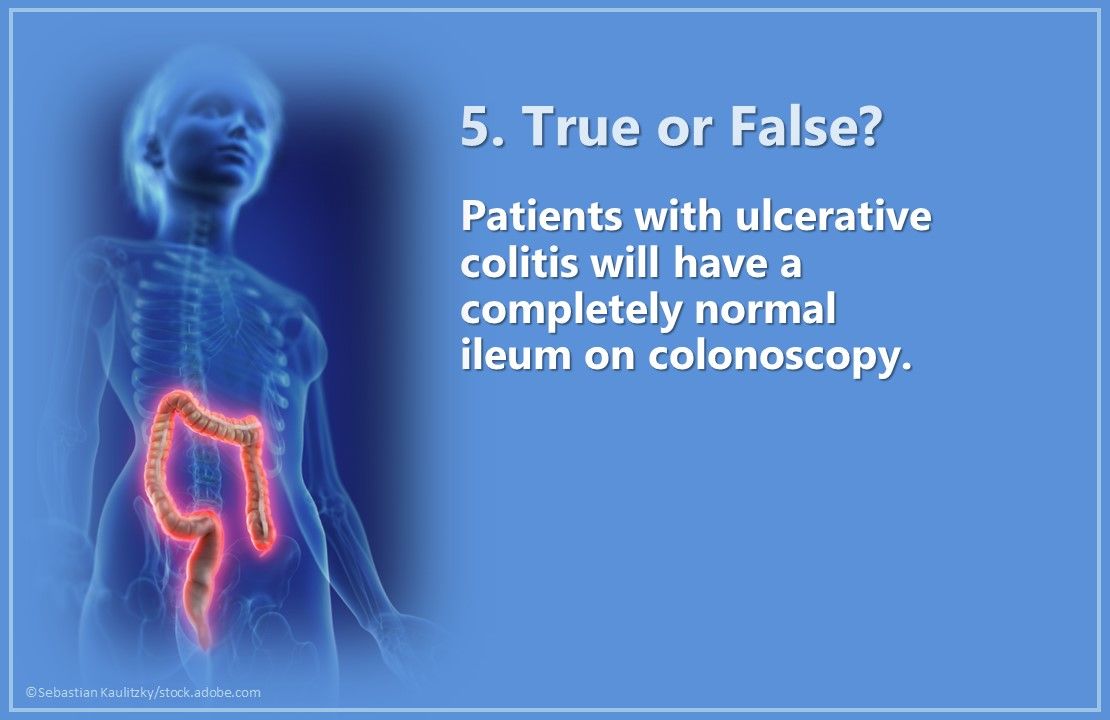
5. True or False: Patients with ulcerative colitis will have a completely normal ileum on colonoscopy.
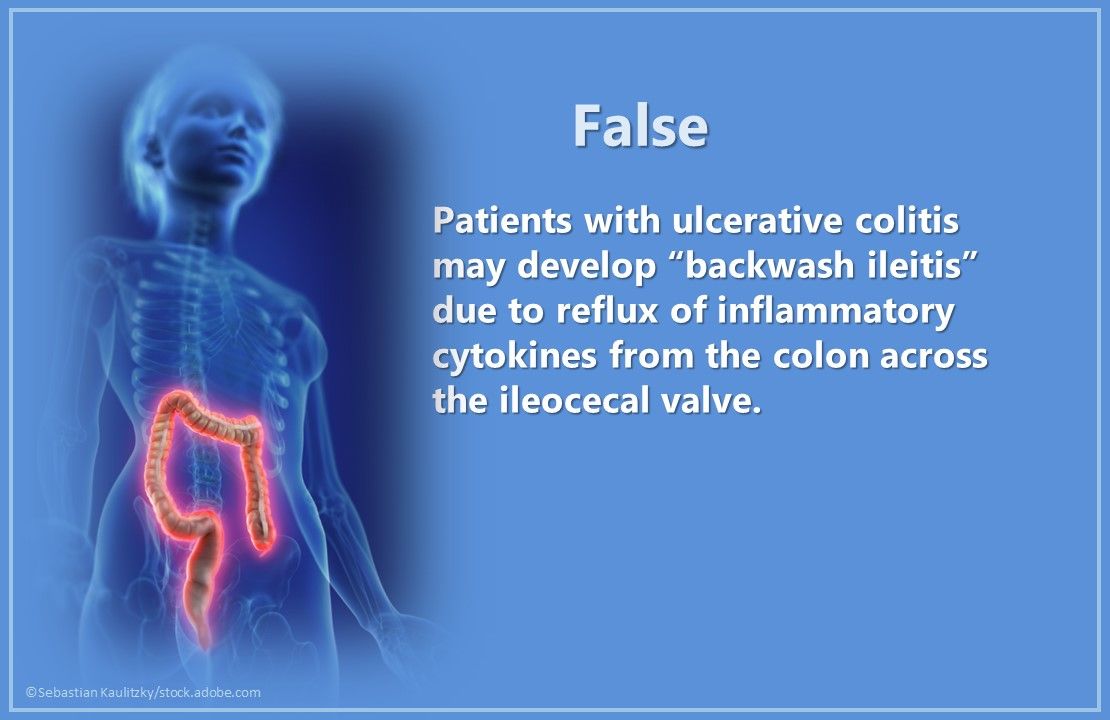
False: Patients with ulcerative colitis may develop “backwash ileitis” due to reflux of inflammatory cytokines from the colon across the ileocecal valve.
For more True/False questions on diagnosis and management of IBD, see: Colitis and Crohn Disease: A True/False Test Part 2
Related Content:




